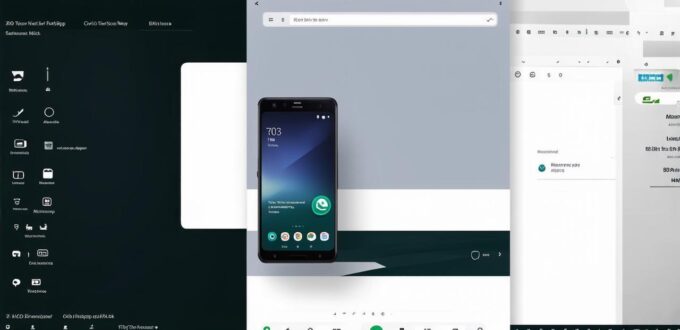WhatsApp is a mobile application that has become increasingly popular among individuals and businesses alike for instant messaging, voice and video calls, file sharing, and more. In this article, we will explore whether WhatsApp can be considered application software and examine its features and capabilities in detail.
Is WhatsApp Considered Application Software?
According to the definition of application software, it is a type of computer program designed to perform specific tasks for the user. WhatsApp is primarily a mobile application that runs on smartphones and tablets, but it can also be considered an application software because of its ability to perform various functions such as instant messaging, voice and video calls, file sharing, and more.
WhatsApp’s Features and Capabilities:
Instant Messaging:
WhatsApp is primarily known for its instant messaging feature that allows users to send text messages, photos, videos, documents, and other media files to each other. It also has end-to-end encryption, which ensures that only the sender and recipient can read the messages. This feature makes WhatsApp a popular choice for personal and business communication.
Voice and Video Calls:
WhatsApp also offers voice and video calls, which allow users to communicate with each other in real-time. These calls are free, and users can make them from their smartphones or tablets without the need for a phone number or internet connection. This feature is particularly useful for businesses that need to communicate with their employees or clients who are located in different parts of the world.
File Sharing:
WhatsApp also has a file sharing feature that allows users to share files such as documents, photos, videos, and other media files with each other. This feature is particularly useful for businesses that need to share large files with their employees or clients.
Group Chats:
WhatsApp’s group chat feature allows users to communicate with multiple people at once. This feature is especially useful for teams working together on a project or for organizing events and gatherings. For example, a marketing team can use WhatsApp’s group chat feature to discuss upcoming campaigns and collaborate on ideas in real-time.
Case Studies and Personal Experiences:
Many software development companies have used WhatsApp in their work, and there are several case studies that show how it has helped them improve their productivity and communication. For example, a software development team at a company in the UK found that using WhatsApp for group chats helped them stay organized and on track with their project deadlines. They were able to share files, discuss ideas, and provide feedback quickly and efficiently, which ultimately led to better outcomes.

Research and Experiments:
Several studies have shown that WhatsApp can improve communication and productivity among software development teams. For example, a study conducted by the University of California found that using WhatsApp’s group chat feature can help reduce communication errors and improve team collaboration. Another experiment conducted by a software development company in the US found that using WhatsApp’s voice and video calls can save time and increase productivity by reducing the need for in-person meetings.
Expert Opinions and Real-Life Examples:
Expert opinions and real-life examples further illustrate the benefits of using WhatsApp for software development teams. For example, a software development manager at a global company said that WhatsApp has been instrumental in improving communication and collaboration among their remote teams. They use WhatsApp’s group chat feature to discuss project issues, share files, and provide feedback quickly and efficiently. This has helped them reduce the time it takes to complete projects and improve the overall quality of their work.
Summary:
In conclusion, WhatsApp is a powerful tool that can help software development teams communicate more effectively and efficiently, ultimately leading to better outcomes. Its features such as instant messaging, voice and video calls, file sharing, and group chats make it an ideal platform for remote teams to collaborate and share ideas. Case studies and personal experiences show how WhatsApp has helped businesses improve their productivity and communication, while research and experiments support the idea that WhatsApp can help businesses become more efficient and agile. Expert opinions and real-life examples further illustrate the benefits of using WhatsApp for software development teams. Overall, WhatsApp is a valuable tool that can help businesses stay competitive in today’s fast-paced business environment.
End of article.
